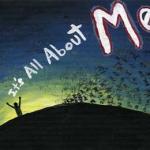
This is a message to all the leaders out there, knowing that everyone leads in their own way. And, I speak of myself first and foremost. I have also led in different ways, big and small, but I’m still on the bottom rung of the proverbial ladder. This piece is going to be about me and my own struggles in and around leadership.
I want to learn from my own mistakes rather than repeat them. I hope to learn from you too, that we can learn from each other. This is a long post, and I do hope you read to the end. I hope to have some useful advice.
A point of clarification, before I begin. I want to make it very clear that I’m not talking about (aka subtweeting, vaguebooking, throwing shade at) anyone. This about no one and everyone at the same time. I have observed things in the different communities I participate. These are my takeaways.
Also to note: If I have something to say about someone, I will tell him or her myself, privately. I’m not interested in the public back and forth that is all too common nowadays. I have participated in such exchanges in the past, and may do it in the future, but I’m certainly not doing it now.
With that, let’s begin.
Many of you heard about the sexual harassment case that uncovered 30 years of abuse from an Imam in Elgin.
That was a difficult time for all the women and men involved, and even though he accepted a plea deal, many people felt like that justice was not served. Despite the fact that he received only a lenient punishment, it was still considered a win for all.
I, too, am a survivor, and while I don’t want to discuss my own abuse at the moment, I thought I was helping myself by helping the victims of the Elgin abuse case. However, that wasn’t my only motivation. It was a duty that fell in my lap, and I had to answer the call. I couldn’t see my own perpetrator brought to justice, but at least I helped some women see theirs have his day in court. I thought this would help me. Boy, was I wrong!
It did not take long before it all caught up to me. After we were no longer triaging with the survivors, the police, the media, etc, the space that was occupied with the work began to crumble in on itself. Mix in a little bit of stress and burnout, and I ended up with a minor disaster on my hands.
In the summer of 2015, my baseline level of stress was raised from a one to a seven (out of ten) all the time. Add work stress, a trip to England and the feeling that I failed those women by not changing the culture around sex abuse in my community That was when I began to unravel. Every little thing would send my brain into panic mode. If I had a trip and imagined that I might be late to catch the flight, that would send me into state of nervousness I had never experienced before.
Up until then, I was doing alright. Most of the time I felt fabulous because I was distracting myself by helping the victims and survivors of Abdullah Saleem, the sexually-harassing imam of the Islamic Institute for Education in Elgin. When that went away, I was left with the mess that I had not dealt with in a year and a half.
Anxiety and depression go together like peanut butter and jelly. They are two buttocks in a pair of underpants (as the famous Egyptian saying goes).
I spent an amazing 10 days in London during Thanksgiving 2015. That was probably when the depression started. I remember sitting in my friends apartment crying and dreading returning to the United States.
But strangely, I had no idea I was depressed. I went about my day to day just going through the motions. There was only one thing that was off for me, I had no appetite. I remember driving home from work saying to myself that I can eat anything I want right now and wanted nothing. I would try to think about all my favorite foods to see what appealed to me, and I got nothing in return. I lost ten pounds at the that time without even trying. I remember skipping meals and not caring that I hadn’t eaten in hours.
It wasn’t until mid February, when productivity at work was terrible, that I finally crashed. I would tell myself every day at work, insha’Allah (God willing) tomorrow will be better, but it wasn’t.
That was the beginning of a new struggle. That was almost two years ago and the depression has never really fully gone away. It comes and goes with the weather, hormones or small traumas. I’ve made lots of progress since that February, but it’s still a struggle; like the abuse, it might be a struggle that ends when I’m in the grave.
Sometimes I feel like the more of my issues I work out, the more that emerge and need working out. I am grateful for the opportunity to improve my well-being and come through a stronger person, but the process is difficult and painful. I often pray for me to endure the pain of healing, rather than to pray for healing.
Why am I saying all of this? You all know how much of an oversharer I am, but I’m trying to make a bigger point here. I do not regret taking on the Elgin work, and I often reflect on that. Were I to do it over again, I know I would have fought harder, and pushed for more change in the community. But now I understand what prevented me from doing my best, and how in the end it ultimately harmed me.
Along with doing the right thing, subconsciously I was attempting to correct the wrong that was done to me as a child by fighting for the victims of Saleem. And when all was said and done, their wrongs might have been addressed, but mine wasn’t. And I was left in the same place as I started, and that was pretty broken.
I know my trauma affected my ability to be most effective in dealing with the Elgin case. I remember over the summer in 2014, when the family of the first victim just wanted an apology from Saleem, I was unable to advocate properly on behalf of the victim. There were negotiations, meetings and eventually a signed confession and an apology. But then Saleem turned to the victim and told her that she also needed to apologize because she didn’t stop him.
In all honesty, that’s what made the mediation fail. I was just as powerless to stop that as I was my own perpetrator from harming me.
My trauma affected my ability to lead effectively. I’m certainly not beating myself up, because I didn’t know until much later how much my past affected my leadership in that situation. Even though I was already treating my trauma by that point, the work I was doing was too close to the wounds that I was still healing from.
This has been a difficult year for a lot of us. Between what’s happening in the country, and the crises among our Muslim leadership, it feels like this year may never end. Many of us have been in panic mode since last November. Thankfully we’re all still here. The world has not ended.
My reminder to myself and to all the people that I look up to is this: take care of yourselves, because if you don’t, you cannot take care of the people who are under your care.

Many of us do the work that we do because of the things that we’ve seen in our lives. We’re motivated to make sure that what happened to us does not happen to anyone again. Because of all the domestic violence in my extended family (victims and perpetrators), I tend to spring into action when confronted with a DV situation. That’s not a bad thing, but sometimes we can go beyond what our duty obliges us to do. Sometimes, we fight a proxy war, thinking we’re going win an old battle, by winning this one.
Sometimes I have let my anger get the best of me, and it may cause me to lash out online or post some passive-aggressive rant on social media. It always ends up bad for me. First, it’s not how I want to conduct myself on or offline. Second, I realize that I cannot compete with crazy, whether it’s a troll or a disgruntled person. I don’t have the energy to fight with people online.
Part of our responsibility to our constituency is to make sure we’re in the best shape physically and emotionally to serve. I wouldn’t say it’s an obligation, but I kind of wish it was. If we’re not our best selves, how can we ask that of the people that rely on us? If we’re engaging in trashing people in public, because of some personal problems, how can we expect the world around us to be any different?
What changes are we going to make in ourselves that we ultimately want to see in the world? How can we model the best behavior in our public lives hoping that, God willing, it will spill over all around us?
I’m still making mistakes all the time, and I try to take responsibility for them. If they’re public mistakes, then the ownership is public as well. I admit when I am wrong, and I seek forgiveness from the person I wronged. For me, I have my eyes on the prize of the afterlife. Not only do I want to see God’s face, but I want to be in the front rows behind the prophets and the martyrs the righteous ones.
Say ameen.
Eman H. Aly works in digital communications and academic research. In her spare time she works in issues surrounding Muslim-Jewish relations in Chicago. Her digital home is at Eman.Land. Use the hashtag #emansplain in discussing this and her other columns.












